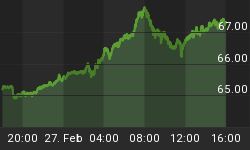The Fed spooked the markets further on Tuesday with an emergency rate cut, while JP Morgan let everyone know it was considering a coronavirus-induced plan to have people work at home and a travel industry CEO says it’s worse than 9/11.
On Tuesday, members of the Federal Open Market Committee (FOMC) agreed to an inter-meeting rate cut by half a percentage point.
But good intentions don’t necessarily mean good results.
The markets got spooked even further, for good reason: FOMC has made a decision like this since the 2008 financial crisis, so it’s not sending the strongest message.
The move caused the Dow to lose all of its Monday gains, closing 800 points down Tuesday.
As Vincent Reinhart, Mellon chief economist and macro strategist, told Yahoo Finance, “historically, the FOMC is reluctant to do an inter-meeting move on the fears that it looks like it’s panicking, that it conveys concerns about the economy from some insider knowledge, it feeds suspicions that it’s responding to equity moves, and lastly that it feeds suspicions that it was influenced by political actors.”
But then, politics happened, again--and only the specter of Bernie Sanders can cause the same level of market panic these days as the coronavirus. On Wednesday morning, the Dow was showing some signs of minimal recovery from Tuesday’s culling when it emerged that Joe Biden won Super Tuesday.
And now the panic itself is panicking.
On one hand, some analysts started to think by Wednesday that the Fed’s move wasn’t so scary, and that it might actually indicate more stimulus ahead to counter the coronavirus threat.
But others, are not so sure, convinced that the Fed doesn’t really have enough power to halt a massive sell-off.
In the meantime, JP Morgan has announced that it’s got a coronavirus contingency plan that would have its employees working at home. No one wants to hear that. It’s asking thousands of U.S employees to test the plan for a potential closure of American offices, Bloomberg reported, noting that the plan is called “Project Kennedy”.
In election year, everyone is tense, and reports that three new coronavirus fatalities in Washington state Tuesday are adding to the panic, despite the fact that they did not indicate that the virus was spreading freely among communities. Nor were two of the three fatalities that recent. Two of the fatalities were patients who passed away on February 26th and had not been earlier diagnosed with COVID-19.
A total of 9 people have died of the virus in the United States.
On Monday, and until Tuesday’s FOMC decision, the market had been rebounding, largely because of the buy opportunities for those more rational thinkers who failed to latch onto the panic.
The Fed’s move also wiped out the dollar, which on Tuesday fell to a five-month low versus the yen thanks to the emergency 50-basis-point cut in interest rates. The dollar was also trading near its lowest point in nearly two years against the Swiss Franc Tuesday. But the Euro got a boost, precisely because the European Central Bank isn’t expected to cut rates as much as the U.S. Fed. Related: Boris Johnson Proposes Bridge To Northern Ireland
But gold is having a great day, and gold bugs are hoping that everyone will be running to their favorite safe haven asset.
On Tuesday, gold surged $49 to trade at $1,638 an ounce, but whether this is a one-time spike or the beginning of a bigger rally, is a major difference of predictive opinion.
Gold loves lower rates that reduce the attractiveness of holding cash instead, but that doesn’t necessarily mean a sustained spike.
Kitco quoted CPM Group managing partner Jeffrey Christian as saying that it’s probably a one-off.
“We’ve seen gold and silver prices rise sharply but they are within the band of what we’ve seen over the last week. We think that it is probably a one-time spike,” he said, explaining that any fiscal response would likely come too late because stimulus would take as long as eight months to take effect. In eight months, the coronavirus may be contained, thus dulling the moment for gold.
And indeed, by Wednesday morning, gold was already weaker, following an optimistic February jobs report.
By Josh Owens for Safehaven.com
More Top Reads From Safehaven.com:
















